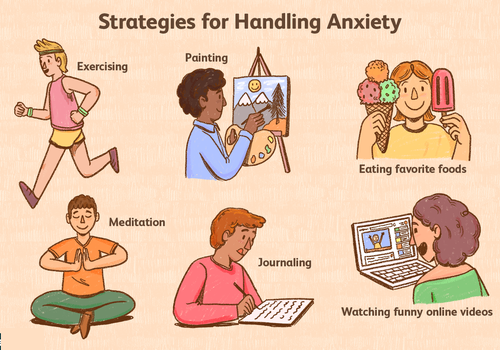By: Priyanka Sharma (RCI Certified Child and Adolescents Counsellor)

Whenever we think about our childhood we all have a lot of wonderful memories in our mind like time spent with family, siblings and friends, school, various celebrations, ceremonies or festivals, etc. I think playing for hours is a common thing in everyone’s childhood. Whether playing with friends or alone, with or without toys, in the park or the room, simply playing for hours.
Play is not just a recreational activity, it is a special, natural, and enjoyable way to keep children active and happy. It is the universal language of childhood, a fundamental aspect of every child’s life that can’t be bound by any cultural, social, or economic boundaries. However, beyond its intrinsic enjoyment and entertainment value, play is very important for the holistic development and well-being of children. As parents we need to understand that there is no right or wrong way to play, it is simply a significant means by which children learn.
As mentioned above, children’s play and well-being are two sides of a coin. It means every child has the right to play. Recognizing this, the United Nations Convention on the Rights of the Child (UNCRC) recognizes the rights of every child to engage in recreational, play, and artistic activities.
In this blog, we will discuss how play holds immense importance in the overall development and well-being of a child’s life. Along with this, we will try to find out how promoting a conducive environment for play contributes to their holistic development and flourishing.

The Right to Play:
The UNCRC, adopted in 1989, enshrines the rights of children worldwide, including the right to play. Article 31 of the convention explicitly states that every child has the right to rest, leisure, and play, as well as to participate freely in cultural life and the arts. This acknowledgement underscores the vital role of play in a child’s physical, cognitive, emotional, and social development.
Importance of Play:
Play is not merely an activity in which children get involved through others or engage themselves for purposes of amusement and enjoyment. While they get involved in the activities willingly. Along with it, the motivation behind engaging in the play is the curiosity to connect their imaginary world with the real world.
Along with the basic needs of nutrition, health, shelter, and education, play is important to develop the potential of all children. It is a critical component of childhood that facilitates physical, motor, cognitive, language, and socio-emotional skills. Through play, children explore their environment, establish relationships with others, build their self-esteem, develop their creativity and imagination, and acquire essential life skills. Whatever form it takes, play provides valuable opportunities for development and self-expression.

Key Benefits of Play:
a) Physical Health: As parents or caregivers, we need to be aware that safe and active physical play is not limited by the weather or environment. It’s a great experience in every season, indoor or outdoor, solo or group, and it’s one of the foundations of a healthy, happy childhood.
- Play contributes to physical fitness such as building strong and healthy bones, hearts muscles, and lungs.
- It helps in both gross and fine motor skill development and aids fundamental, balance and coordination.
- It improves posture, flexibility, and reaction time.
- It reduces the risk of obesity and promotes a lifelong appreciation for physical activity and healthy lifestyles.
b) Cognitive Development: All the children benefit from play in different ways. Importantly, we should be aware that these experiences are essential for their cognitive development and for introducing them to a world of possibilities.
- Play enhances children’s creative, logical & critical thinking.
- It reinforces their memory and attention skills.
- It allows them to learn through exploration and boosts their creativity & imagination.
- It strengthens their problem-solving skills.
- Play heightens their patience and turn-taking skills.
- It encourages experimentation and fosters a deeper understanding of cause-and-effect relationships.
- This cognitive development prepares children for their future while building life skills such as self-confidence, self-esteem, cooperation, independence, and socialization.
c) Language Development: Play is an ideal way for children to talk to others and it helps them start interacting with the world around them. As they interact with other children, they may begin to pay attention to other’s word choices, which can improve their vocabulary and sentence structure. We all have seen that our children always want us to be with them while playing. If we participate in these engagement activities, we will also help enhance and expand their linguistic abilities.
- Kids learn to use words to express themselves while playing. Along with it, enhances communication skills which is beneficial in helping children interact with others socially.
- Play helps to enhance children’s language skills, including vocabulary, syntax, and narrative abilities.
- It boosts their skills of initiating a conversation and also plays an important role in enhancing their ability to maintain it.
d) Emotional Well-being: Play activities play an important role in the emotional development of children and make them emotionally strong. The real importance of play in emotional development should be understood by every adult, so we’ve put together this guide to help.
- Play gives a medium for the children to identify and express their emotions in creative ways.
- It helps children to cope with stress, anger, fear, anxiety, and challenging life experiences.
- It helps the children to interact and resolve their conflicts with others in healthy and positive ways.
- Play develops and reinforces children’s positive self-image.
- It promotes children’s resilience and boosts self-esteem and confidence.
e) Social Skills: Play helps the children to learn about their social circle, environment, and their places, in the world around them. Social skills are the skills that children need to use every day.
- Play helps children to interact, and communicate, giving them the skills to make friends and sustain friendships.
- Through play, children learn to cooperate, negotiate, and communicate effectively with others.
- It promotes empathy, teamwork, and conflict resolution, laying the foundation for healthy social relationships.
- It develops the knowledge of how to behave in social situations and an understanding of both written and implicit rules when communicating with others.
Barriers to Play:
In this well-educated age, we all know that play gives children endless opportunities to learn and explore the world in which they are growing up. Despite play being recognized as a fundamental right, many children around the world face barriers that limit their access to play. These barriers can potentially hinder a child’s ability to engage in meaningful play and learning opportunities and possible factors are lack of space, fear of children hurting themselves, poverty, inadequate play spaces, safety concerns, academic pressure, and the proliferation of screen-based entertainment, etc. Addressing these barriers requires collective efforts from governments, communities, educators, and parents to prioritize play as an essential aspect of childhood.

Promoting Play-Friendly Environments:
As parents and caregivers, it is our responsibility to find the many ways we can encourage and support the power of play in our children’s lives. Creating a designated play-friendly environment where our children can engage in different types of play. It involves ensuring access to safe and inclusive play areas, integrating play-based learning into educational curricula, fostering supportive parenting practices, and advocating for policies that protect and promote children’s right to play. It requires investment in playgrounds, and recreational facilities, joining in the fun, encouraging a variety of play experiences, unleashing their creativity, limiting screen time, etc. Moreover, it entails valuing play as a legitimate form of learning and incorporating playful approaches into early childhood education and beyond.
Conclusion:
In conclusion, this blog adds a new dimension to our awareness of and importance of play. Now we know that play is not just for fun, it is beyond that. We must always remember that it is a fundamental right and a powerful tool for the development and well-being of children. By upholding children’s right to play and creating environments that nurture and celebrate playfulness, we empower children to thrive, discover their potential, and shape a brighter future for themselves and society as a whole. Let us pledge to prioritize play and ensure that every child has the opportunity to laugh, learn, and grow through the transformative power of play.
For any information you can contact Heart2Mind at contactus@heart2mind.com or +91-8595752152.



